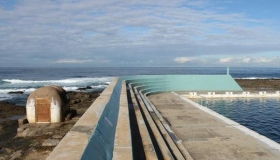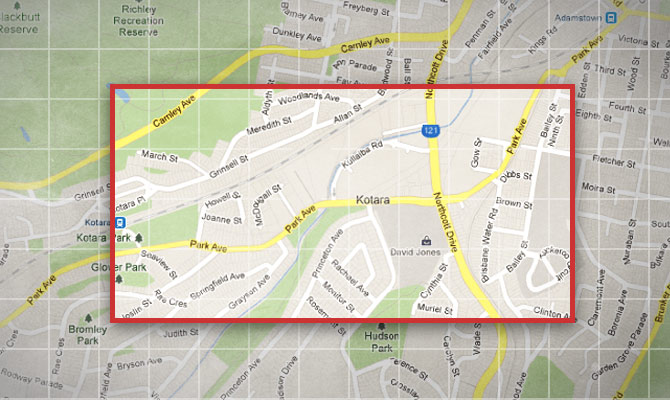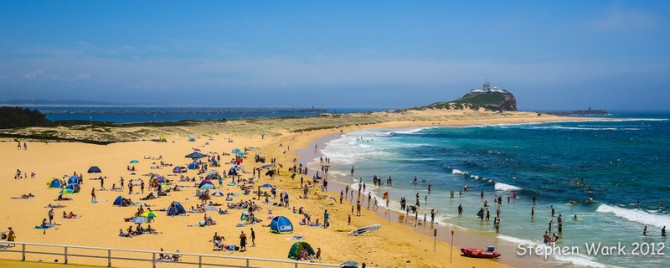
Newcastle’s Hidden Theatres
It seems as though many of us forget about some of the amazing things the city of Newcastle has to offer. Urban Insider has collected a map guide to some of Newcastle’s incredible theatres with a fascinating history! Newcastle has some of the oldest theatre districts in Australia including the Victoria Theatre which, as the oldest theatre in New South Wales, is definitely worth seeing! Newcastle has so many hidden secrets and now they’re a little easier to find. It’s a great excuse to take a walk or a drive around Newcastle and soak up the history!
Victoria Theatre
The Victoria Theatre in Newcastle, New South Wales, opened in1876 and was rebuilt during 1890-91 only to close in 1966. It is the *OLDEST THEATRE* still standing in New South Wales and has recently been heritage listed. The architect in charge of the 1890 rebuilding was Mr. James Henderson who elaborately furnished the three level auditorium in a neo-Grecian theme. A large stage house and small first class hotel were also incorporated within the second theatre, the latter closed during 1921 during extensive renovations to convert the theatre into dual stage and screen use. (Wikipedia) The interior dress circle, circle foyer, proscenium, stage, fly tower, dressing rooms, ceilings and walls of the Victoria are all intact. Only the vestibule (lower foyer) and back stall area had been subject to alteration for retail purposes. The exterior above the awning is also intact, as it was after the 1921 alterations (with the former hotel windows 'blinded' when the auditorium was extended. (Wikipedia) As the oldest theatre building within New South Wales The Victoria has a great deal of historical importance in that it represents an age of vaudeville, legitimate theatre, with silent and modern film cinema that no other building in the State can offer. (New South Wales Heritage Office)
Everyones Theatre
The Everyones Theatre in Carrington is historically significant as a purpose built premises for the screening of pictures and films. Opening in 1929, Everyones Theatre featured projectors at the rear of the building and seated 484 people. (New South Wales Heritage Office) Constructed in 1927, with donated materials and assistance from the Residents of Carrington and Mr Edward Spencer, the Everyones Theatre may be a rare example of a cinema constructed under such circumstances. After its closure as a theatre in 1962, the building was converted to a soap factory and is now a heritage listed residential apartment building (having been adapted in 2004) The residents of Carrington helped build the cinema, in exchange for 2 free shows per person each Christmas. (New South Wales Heritage Office)
Theatre Royal
According to the NSW Heritage Office the Theatre Royal is a historical, associative, aesthetic, rarity of state level significance. It is one of the few 1930’s cinemas of Art Deco / Modern style remaining with many key features that exemplify the era surviving in relatively good condition, particularly its interior wall detailing and staircase railings. The Theatre Royal is heritage listed and is the only remaining cinema in Australia designed by Charles Bohringer, a well-known practitioner of the Art Deco style. (New South Wales Heritage Office) The theatre is representative of a number of phases in the history of cinema and cinema design in Australia. It has been remodelled from an earlier classical picture and vaudeville theatre to the current Art Deco style, with later modifications reflecting changes in cinema technology and design in response to a number of social and economic factors. (New South Wales Heritage Office) These factors mark the decline of large-scale cinemas in response to competition from television and other forms of entertainment from the 1950s and 1960s onwards. It also reflects the transition toward multiplexes as the cinema-going experience was transformed grand aesthetics and a sense of occasion, to one of increasing standardisation and commercialism. (New South Wales Heritage Office)
Kings Theatre
Kings Theatre was originally called the Coronation Hall to commemorate the coronation of King George the V and was a popular venue for a variety of entertainment including, roller skating, dance concerts and stage shows. In 1968 the then owners, Mr Warren Murnane, purchased the property and intended to erect a neon sign, but due to economic reasons changed the name to "Kings". (New South Wales Heritage Office) Originally built upon the Northumberland Hotel grounds it is now a heritage listed site.The front doors are from an old theatre in Sydney, as are the rolled steel joists supporting the circle. The posts supporting the rolled steel joists are propeller shafts from old ships in Sydney. (New South Wales Heritage Office)
Regent Picture Theatre
As one of the few 1920s picture palaces in NSW, and possibly Australia, Regent Picture Theatre in Islington has historical associative and aesthetic significance at a state level. Remaining unaltered since its construction this heritage listed site is also the sole remaining theatre built for William Herbert, a prominent picture theatre proprietor who operated locally and internationally. (New South Wales Heritage Office) With its unique facade and classical detailing, the building occupies a prominent corner site, giving it landmark qualities. Internally, its grand spatial quality and elaborate classical features, including proscenium, dress circle, balconies, and ornate ceilings that recall the heyday of cinema. (New South Wales Heritage Office) These features evoke the grand aesthetic experience and sense of occasion that was part of the cinema experience from the 1920s to 1960s and is representative of an important phase in NSW and Australian social and cultural history. The Reagent Picture Theatre is rare in NSW, and possibly Australia, as a space that remains recognisable as an original theatre with little adaptation or alteration of its interior or exterior form since the 1920s. (New South Wales Heritage Office)
Savoy Picture Theatre
Savoy Picture Theatre opened in 1937 with the Janet Gaynor, Frederic March Drama, A Star is Born. It seated 735 people and is now a New South Wales heritage listed building. (New South Wales Heritage Office)
Savoy Theatre
Savoy Theatre is an early picture theatre with entertainment by Wilbur Kentwell and his "toe tapping" organ music before and during film intervals. (New South Wales Heritage Office). It opened in 1937, closed in 1963 and later reopened as a theatre restaurant before becoming a community centre in 1985. It is now a New South Wales heritage listed building. (New South Wales Heritage Office)
Lyric Theatre
Originally built fronting Thorn Street the Masonic Lodge housed the Lyric Theatre from 1915. It also served various functions since, including a minigolf centre, billiards hall and hostel for Australian servicemen briefly during WWII. (NCC Heritage Walk)
Central Hall
Central Hall was built in 1903. It was used by travelling picture show companies from 1905 but later closed for many years before becoming the Methodist Mission before reopening in 1992 as the Mission Theatre. Bacchus Restaurant occupies it now. (NSW Cinemas)







such a good read! i was wondering how many of these sites have access to the public?
Emma, unfortunately I think only half are open to the general public.
How can I find out which ones are open to the public. Does Nsw Heritage Office oversee them all?
Neroli, most are on the NSW State Heritage Register, but only the Victoria Theatre is covered by the NSW Heritage Act (whatever that means).
There are other theatres around Newcastle that I didn’t mention like the old Roma Theatre, which I know still stands, but I couldn’t identify the building.
NSW State Heritage Register http://www.heritage.nsw.gov.au/07_subnav_04.cfm
Neroli, I know that the Regent Picture Theatre is normally open, it’s looks rundown but worth a visit.
Victoria Theatre is not open to the public.
Central Hall and Kings Theatres are restaurants.
Theatre Royal is a church meeting place, but you normally can get in for a look.
Lyric and Savoy i think are closed to the public (I maybe wrong).
Not sure about Everyones Theatre. I hope that helps.
Thanks so much. That’s very helpful. I’m looking forward to getting a closer look at some of them.
There were also many community halls used as theatres in the suburbs. Even a few in backyards! Usually started by enthusiasts. An expert on these would be Bob Mason who runs the Boolaroo cinema.
Roma theatre I think was only 2-3 doors from the corner of Hunter and Crown street. Thanks for the interesting article.
I remember going to the Savoy Theatre, New Lambton, on a Saturday afternoon in 1959. One western serial they showed was “Deadwood Dick” (1940), made in 15 episodes (about 20min/episode). I guess, as a suburban theatre, they tended to show B-movies or cheaply obtained serials. The arrival of local TV obviously killed it.
Have been looking for name of old picture theatre in Mayfield(not Islington) and also 2 theatres in wallsend.Would be very grateful for names.Hopefully. Thank you.
My father used to be the projectionist and manager of the Royal Theatre in Boolaroo up till about the late 1950s. Do you know if there are any photographs of the Theatre in existence please? I loved reading the stories of the old hidden theatres.
My parents had a perment bookings at the Cardiff Royal theatre on Wednesday and Saturday nights in the 40’s & 50’s . My mum’s sister played the music for the silent movies & her other sister had the shop next store . Mr Edwards owned the theatre then . In the 40’s & 50’s I went to this theatre nearly very Saturday afternoon for 3 pence . I have an old photo of this great theatre.
Gordon do you have anything on the old picture theatre that was at 202 Lambton rd New Lambton was before the Savoy in Alma Rd as my grandmother had the shop next door which the front has been closed in. The site is know a doctor surgery. Ross
do you have any information on who built the King’s Theatre in Lambton and who was the original owner?